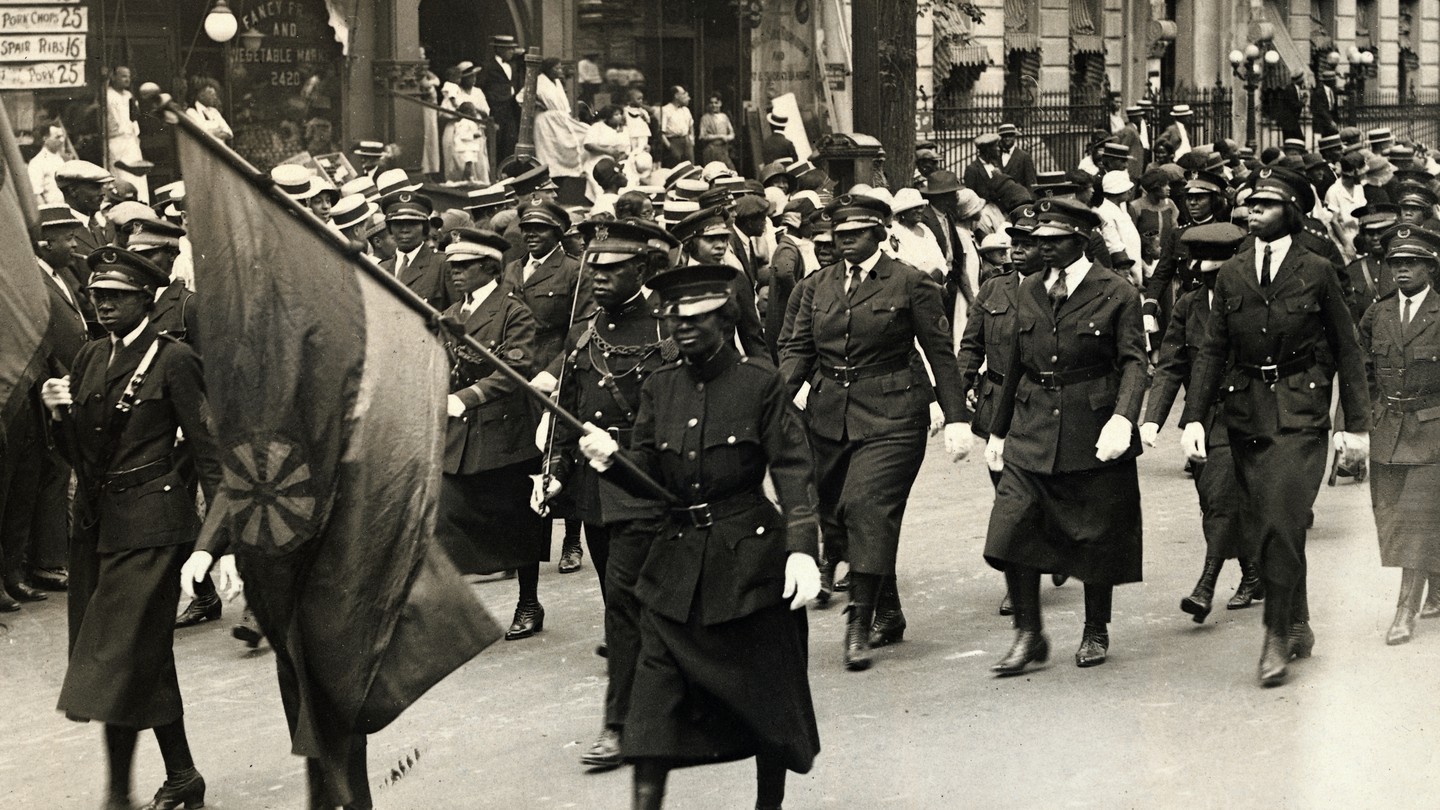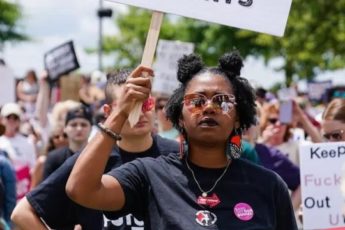Today’s protests build on a long tradition of activism.
In cities across the United States, black activists are denouncing state-sanctioned violence and demanding radical changes to American policing. Black women leaders occupy a central role in these movements. Utilizing public spaces—such as city parks and streets—they are advocating for equality and justice and giving voice to historical truths many Americans find uncomfortable. From the activist Tamika Mallory, who spoke before a crowd of protesters in Minneapolis, to the Black Lives Matter co-founder Patrisse Cullors, who promoted the growing movement to defund the police, black women are at the forefront of the protests sparked by the police killings of George Floyd, Breonna Taylor, and Tony McDade.
Read: The double standard of the American riot
In the 20th-century U.S., black-nationalist women—individuals who advocated for black liberation, economic self-sufficiency, racial pride, unity, and political self-determination—emerged as key political leaders on the local, national, and even international levels. When most black women in the U.S. did not have access to the vote, these women boldly confronted the hypocrisy of white America, often drawing upon their knowledge of history. And they did so in public spaces—in mass community meetings, at local parks, and on sidewalks. These women harnessed the power of their voices, passion, and the raw authenticity of their political message to rally black people across the nation and the globe.
READ FULL ARTICLE HERE








Leave a Reply